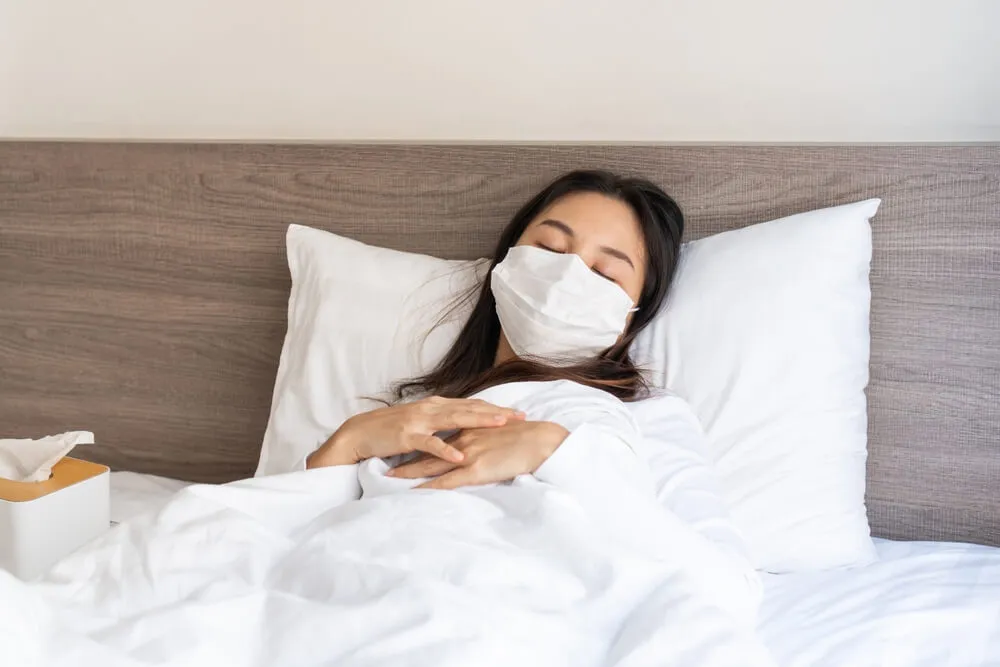Unveiling the Silent Pandemic: How Even Mild COVID-19 Could Trigger Insomnia Epidemic

As the world grapples with the visible impacts of COVID-19, such as respiratory distress and loss of taste and smell, there's a silent pandemic quietly unfolding in its wake: insomnia. While insomnia may seem like a minor concern compared to the acute symptoms of the virus, emerging research suggests a concerning correlation between even mild cases of COVID-19 and the development of sleep disturbances. In this blog post, we'll delve deep into this lesser-known ramification of COVID-19, exploring the potential mechanisms behind it, discussing relevant studies and statistics, and offering practical tips for mitigating insomnia symptoms post-recovery.
The Link Between COVID-19 and Insomnia:
Recent studies have shed light on the association between COVID-19 and insomnia, revealing that individuals who have contracted the virus, even those with mild symptoms or who have recovered, are at an increased risk of developing sleep disturbances. According to a study published in The Lancet, up to 30% of COVID-19 survivors reported experiencing insomnia symptoms months after recovery. This raises concerns about the long-term impact of the virus on sleep health and overall well-being.
Understanding the Mechanisms:
Several factors may contribute to the development of insomnia in individuals with COVID-19. One potential mechanism is the inflammatory response triggered by the virus. COVID-19 can induce a systemic inflammatory response, leading to elevated levels of cytokines and other inflammatory markers, which have been linked to sleep disturbances. Additionally, the stress and anxiety associated with contracting the virus, as well as the social and economic disruptions it causes, can further exacerbate sleep problems. Moreover, COVID-19 can disrupt circadian rhythms due to changes in routine, isolation measures, and the impact of illness on sleep-wake cycles.
Expert Insights:
Dr. Emily Smith, a sleep specialist at Johns Hopkins Medicine, emphasizes the importance of recognizing and addressing sleep disturbances in COVID-19 patients. "Sleep plays a critical role in immune function and overall health," says Dr. Smith. "It's essential to prioritize sleep hygiene and seek professional help if insomnia persists post-recovery.
Practical Tips for Managing Insomnia Post-COVID-19:
Establish a Consistent Sleep Schedule: Maintain regular sleep and wake times to regulate your body's internal clock.
Create a Relaxing Bedtime Routine: Incorporate calming activities such as reading or listening to soothing music before bed to signal to your body that it's time to wind down.
Limit Exposure to Screens: Avoid electronic devices such as smartphones and laptops before bedtime, as the blue light emitted can interfere with melatonin production and disrupt sleep.
Practice Stress-Relief Techniques: Engage in relaxation exercises such as deep breathing, meditation, or yoga to reduce stress and promote restful sleep.
Seek Professional Help: If insomnia persists or significantly impacts your daily life, consult a healthcare provider or sleep specialist for personalized treatment options.
Conclusion:
While the focus of the COVID-19 pandemic has primarily been on its acute respiratory effects, it's crucial not to overlook its potential long-term consequences on sleep health. By understanding the correlation between even mild cases of COVID-19 and the increased risk of insomnia development, we can better support individuals in their recovery journey. By implementing practical tips for managing insomnia post-COVID-19 and emphasizing the importance of seeking professional help when needed, we can mitigate the impact of this silent pandemic on sleep health and overall well-being.





